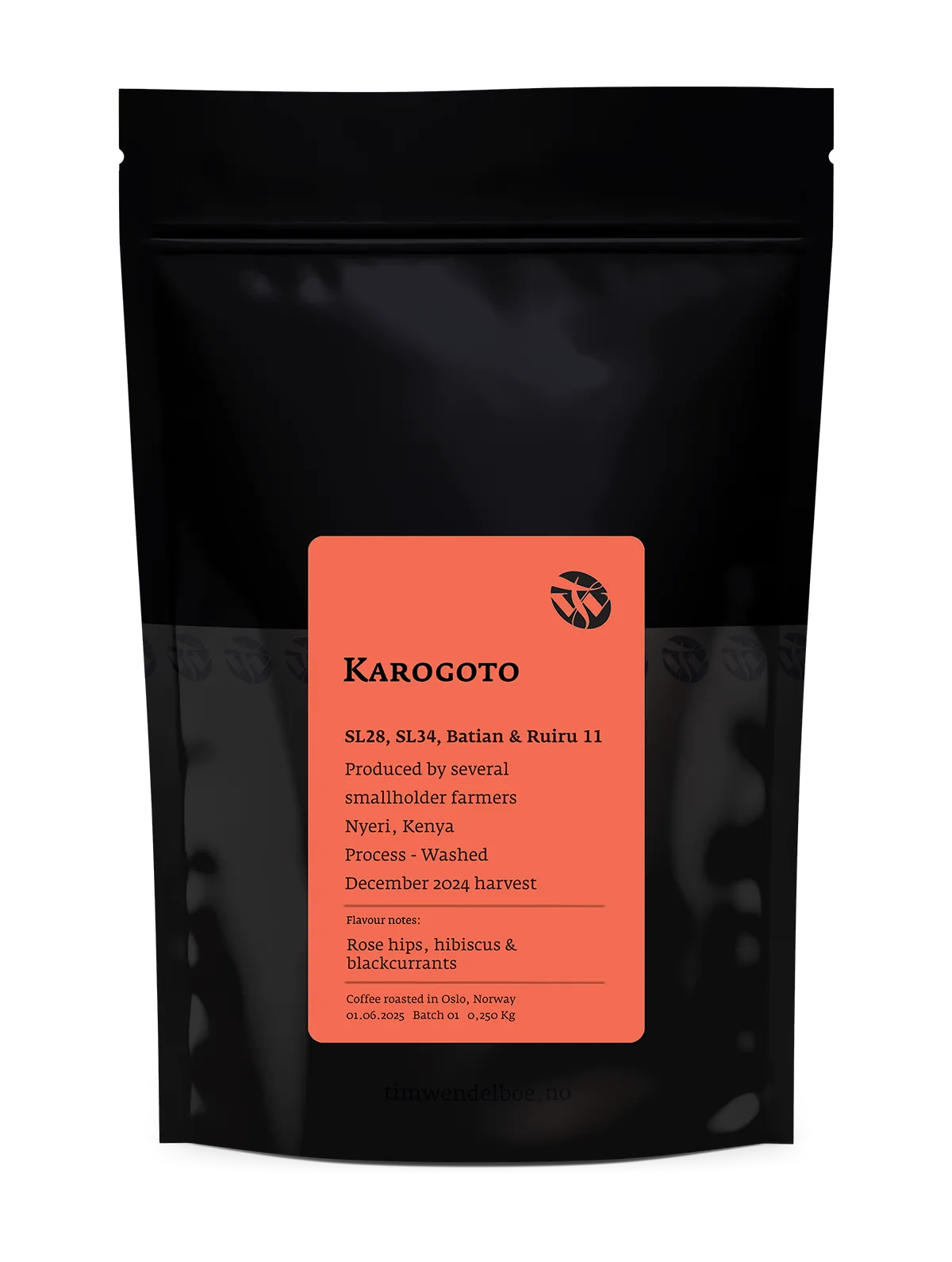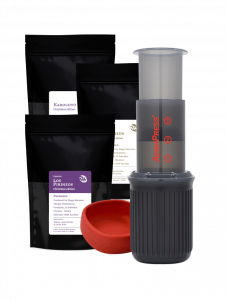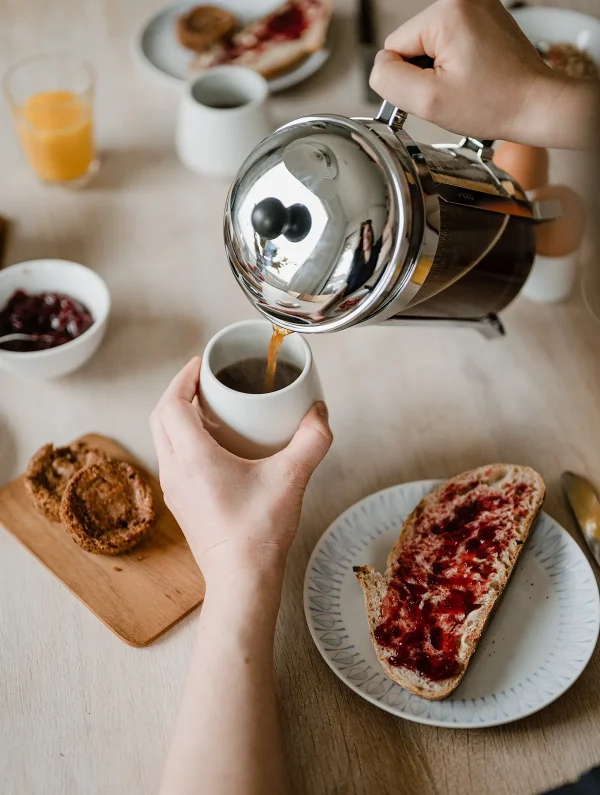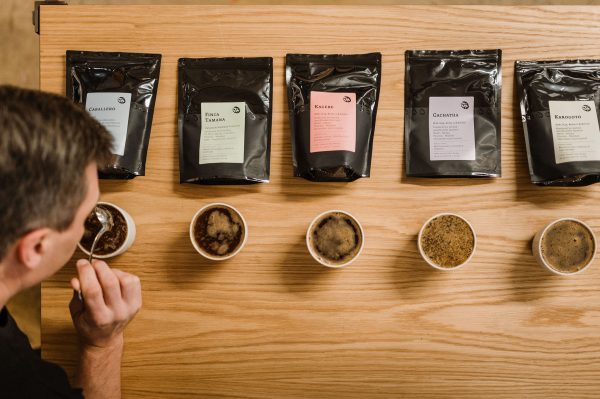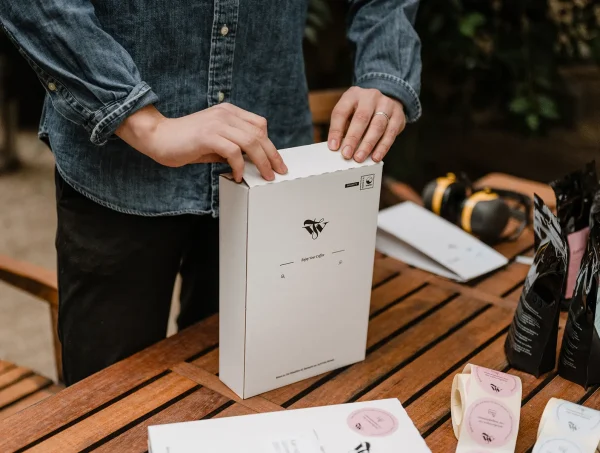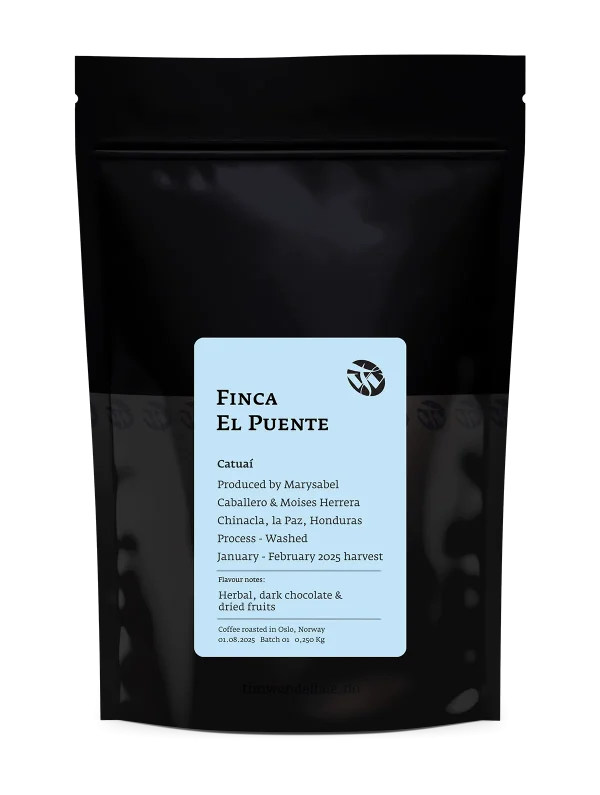| Cultivar | SL28, SL34, Ruiru 11 & Batian |
|---|---|
| Flavour Notes | Rose hips, hibiscus & black currants |
| Producer | Several smallholders farmers |
| Country | Kenya |
| Region | Nyeri |
| Process | Washed |
| Harvest | December 2024 |
| Roast Profile | Light Roast |
| Contents | Whole Coffee Beans |
| Bag Size | 250g |
Karogoto
kr225.00
This Kenyan coffee from the Karogoto wet mill, has a very distinct and intense fruity flavour with a refreshing acidity. Expect notes of rose hips, hibiscus and blackcurrants.
Out of stock
Additional information
Tim's Notes
The coffees from Karogoto are always super clean and have an intense fruity and floral flavour. This is most likely because many of the members/farmers are still growing the SL28 cultivar and have received a lot of agricultural training over the years. The climatic conditions also contribute to the coffees intensity. The cool nights and moderately hot days slow down the ripening process and give a very sweet, intense and unique coffee.
This year we bought two different lots from Karogoto with slightly different flavour profiles. The first lot we sold in July 2025 was a lot that tastes really ripe and fruity like blackberry and blackcurrants probably due to a slightly prolonged fermentation. This current lot is more like the classic coffees from Karogoto which tend to have a lighter body and high acidity with tart rose hip flavours. This demonstrates that even though the coffees from Karogoto tend to be quite consistent in quality there are always small variations in flavour profiles depending on the quality of the coffee cherries they receive from the farmers. Also the differences in lot size will affect the processing protocols and especially the fermentation time.
This year we bought two different lots from Karogoto with slightly different flavour profiles. The first lot we sold in July 2025 was a lot that tastes really ripe and fruity like blackberry and blackcurrants probably due to a slightly prolonged fermentation. This current lot is more like the classic coffees from Karogoto which tend to have a lighter body and high acidity with tart rose hip flavours. This demonstrates that even though the coffees from Karogoto tend to be quite consistent in quality there are always small variations in flavour profiles depending on the quality of the coffee cherries they receive from the farmers. Also the differences in lot size will affect the processing protocols and especially the fermentation time.
Cultivar
Process
Picking and sorting
- The coffee cherries are typically hand picked by the farmers and their family members. After delivering the coffee cherries to the wet mill the good coffee cherries are separated from the inferior ones by hand sorting and they are delivered in separate cherry hoppers.
- The cherries are depulped and graded by using an old Aagard disc de-pulper that uses water and gravity to sort dense beans from less dense beans. Coffee of different grades are moved to separate fermentation tanks where the parchment coffee, with it’s mucilage still on, is dry fermented for about 12-16 hours over night. After fermentation the coffee is washed in clean water and graded once again by gravity. The more dense beans are dried separately from the beans with lower density and inferior quality.
- The coffees are dried on elevated drying tables, where defect parchment coffee gets sorted out by hand. Drying the coffee takes about 10 – 14 days. During daytime the coffees are raked to ensure even drying. The drying tables are covered during the hottest times of the day to avoid over heating and also at night time to prevent condensation. The drying process is finished when the moisture content in the coffee beans is between 10-12%. After drying, the coffees are stored in conditioning bins before delivery to the dry mill. The coffees we buy from Kenya are always vacuum packed before it is shipped to Norway.
Shipping
For our Norwegian customers, we offer three shipping options:
- Pakke i Postkassen - With Pakke i Postkassen, tracking is provided, and delivery is estimated within 2-3 business days.
- Pakke til hentested - The parcel can be collected from a Post in Store, Post Office, parcel locker, or parcel box. This option includes tracking, with delivery expected within 1-5 business days.
- Norwegian Post, No Tracking (Brevpost) - This option does not offer tracking. Delivery is estimated within 2-5 business days.
How To Brew
Filter
- We strongly recommend using the correct measurements and brewing techniques when you brew our coffees. Use a digital scale both to measure water and coffee in order to get consistent results, and we recommend using between 60 to 70 grams of coffee per litre (1000g) of water, depending on the brewing method, water quality and coffee used.
- We strongly recommend using VST filter baskets. Both the 18g, 20g and the 22g basket is great for our coffee. The VST filters makes it a lot easier to extract the espresso properly which gives a lot more sweetness in the cup. They are also more or less identical to each other which makes it easy to be more consistent when brewing on several groups at the same time. You can buy the filters on our webshop, just make sure they fit your machine (ours fits all La Marzocco machines and machines with 58mm filter baskets). With the VST 18g filter basket, we recommend the following brewing parameters: 18-19g freshly-ground coffee, 25-35s brewing time, 35-38g of final brew liquid in the cup, 93°C-94°C brew water temperature.
Karogoto
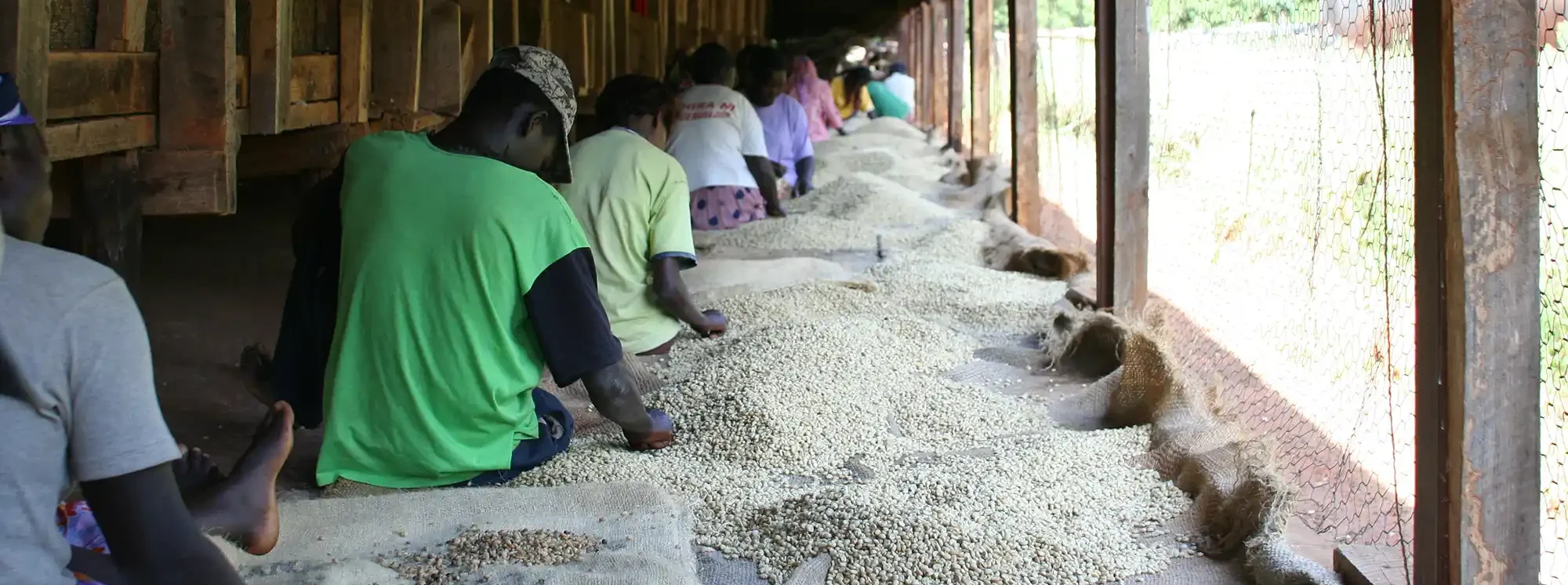
Karogoto is a wet mill (also called factory) situated near Karatina town in Nyeri, Kenya. It is one of four wet mills that are owned by the Tekangu farmers cooperative society. There are numerous wet mills in Nyeri often just a few minutes drive from one to another. The reason for this is that Nyeri is home to thousands of smallholder farmers that owns on average 0,5 hectares of land where they typically grow coffee, maize, pasture and other crops. A farmer typically will pick her/ his coffee cherries and sell them to the nearest wet mill that is within walking distance. The cherries get bulked together before they are processed and dried by the staff on a cooperative wet mill and later sold to exporters at the weekly Kenyan coffee auction or directly to roasters. Kenya is both a complicated and a very streamlined place to buy coffee. Unlike the origins we buy from in the Americas, it is slightly more challenging to find farmers that own enough land to be able to supply even small roasters like us. Most smallholder farmers sell their coffee to cooperatives and do not process or dry their own coffees.
Learn More About The Karogoto Wet Mill
Transparency
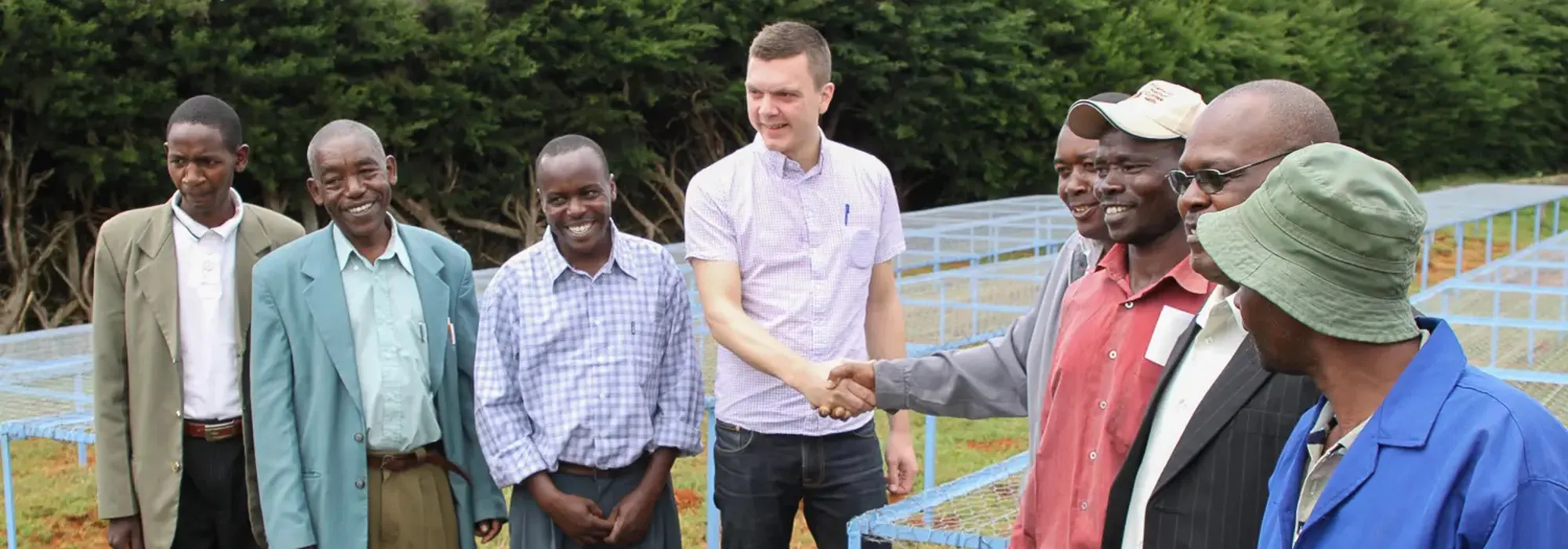
The farmers sell coffee cherries to the wet mills and deliver cherries several times during a harvest. The farmers are paid a price based on all the coffees they sold to the cooperative that year. The wet mill will process and dry the coffees before they get sent to the local mill for storage. Therefore, the cooperative by law charges no more than 20% of the selling price of the coffee. Most of the wet mills we buy from in Kenya publish the prices they paid for their coffees on their notice boards for the farmers to see and everything is recorded in their accounting. However, I still know that we can get better at providing transparency in Kenya and I really hope to step up our buying protocols and find more long term partners in Kenya in the years to come. All coffees are imported directly to Norway by ourselves.
Learn More About Transparency

